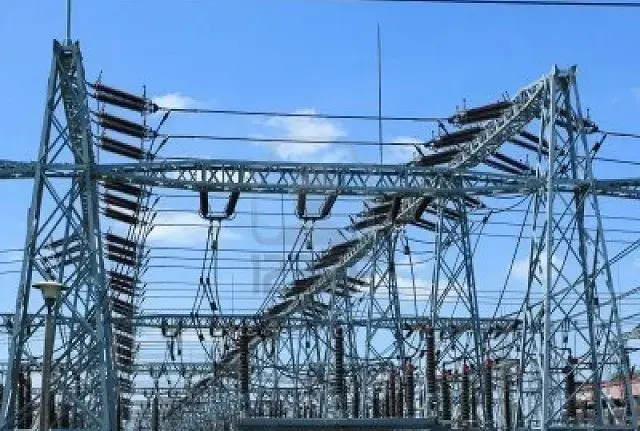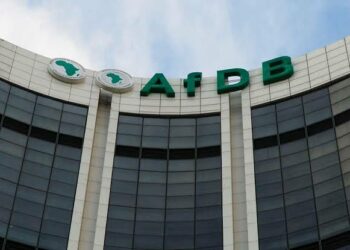The absence of stable, effective and fairly priced electricity supply in Nigeria has been a long-standing challenge for manufacturers as there is need to ensure improvement in electricity generation.
The worrisome development has compelled many manufacturing industries to supplement the unreliable electricity supply with alternative energy sources. Regrettably, the available alternative energy sources, such as diesel, have become exorbitantly expensive.
Nigeria’s electricity sector is undergoing a period of significant development even though the Nigerian government has enacted a number of reforms aimed at improving the sector’s efficiency, reliability and liquidity.
Though, these reforms have brought about some level of improvement, the cost of electricity in Nigeria is still high and a significant portion of the population lacks access to power.
A surveyed data by Manufacturers Association of Nigeria (MAN) suggested that, on average, manufacturers spent at least N144.5 billion on sourcing alternative energy in 2022, up from N77.22 billion in 2021.
This translates to about 87 per cent increase in the cost of access to alternative energy sources by manufacturers within a year. In the last eight years, electricity tariff has been increased by 186 per cent.
New Electricity Bill
In 2023, the Nigerian electricity sector is forecast to continue its growth significantly on the back of the recently signed electricity bill while the expected tariff hike effective July 1, 2023 is expected to contribute significantly to the total revenue across the sector’s value chain.
However, this expectation may likely be constrained by a number of challenges, including the country’s poor infrastructure, the high cost of electricity, and the lack of access to electricity for many Nigerians.
Impact Of Electricity Tariff Hike On Manufacturers
MAN stated that, the further rise in electricity tariff will directly increase the cost of production for manufacturers, explaining that “already, we have energy constituting between 28 per cent to 40 per cent in the cost structure of manufacturing industries. We can imagine the impact on manufacturing industries that are energy-intensive, such as; metal processing, heavy machinery, and chemicals manufacturing.”
The association also noted that, a spike in the electricity tariff will erode the profit margin of manufacturers and reduce their ability to expand operations and create new jobs; leading to high probability of activities paralysis, especially, among small and medium-sized enterprises (SMEs) who are unable to accommodate the higher price; and also hike in electricity tariff will reduce the manufacturers’ profitability and by extension the quantum of taxes and fees payable to the three tiers of Government.
Stakeholders’ Expectations
Director-general of MAN, Segun Ajayi-Kadir, stated that the expectation of manufacturers is that the federal government and the Nigerian Electricity Regulatory Commission (NERC) will ensure improvement in electricity generation, transmission and distribution that will lead to adequate and reliable electricity supply in the country, rather than increasing the tariff on the mere 4000MW to meet all revenue needs of stakeholders in the electricity supply industry.
According to him, government should ensure that, at least, 90 per cent of electricity consumers are metered to ensure consumption reflective electricity bill payment, formulate electricity policies that will aid investment in energy industry to increase generation capacities that will usher in large scale production of electricity and ensure effective implementation of the recent Electricity Act (2023) that is aimed at increasing electricity supply in the country.
Ajayi-Kadir called for urgent need for the diversification of energy sources and intensifying infrastructure investment in the power sector; eradicate outrageous bills by closing the metering gap through the liberalisation of ultimate users’ access to effective mass metering; ensure the connection of all consumers to the electricity grid to avoid free riding and unfair charges on the few connected consumers; work on efforts to increase the electricity supply base in order to distribute the total cost among a high number of consumers at a much lower unit cost; and States and private investors should rise up to the challenge by taking advantage of the Electricity Act 2023 to eradicate the energy poverty of their people.
Analysts at Cowry Asset Management Limited opined that while acknowledging the Nigerian electricity sector’s challenges, it is crucial to recognise the growth prospects it offers, saying by addressing the sector’s weaknesses and leveraging available opportunities, Nigeria can meet its increasing power demand, improve energy security and unlock the full potential of its electricity market.
Director/CEO, Centre for the Promotion of Private Enterprise (CPPE), Dr Muda Yusuf, stated that, the proposed hike is coming at a very wrong time as against what the citizens want to hear; the palliatives the government is going to give to cushion the effect of the current reforms particularly the fuel subsidy removal.
“It is insensitive at this time especially when nothing concrete is yet on the table, in regard to the palliatives for the electricity suppliers to be talking about increasing tariffs. Organisations should also be sensitive to the feelings of the people and the nation before coming up with policy,”he said.
Moreover, manufacturers noted that the sector, which is the engine of growth, is still struggling as a result of inclement production environment in Nigeria.
They said, “The expectation is that government will engage in extensive and intensive consultations with the manufacturers; focus on measures that will salvage the sector and halt the trend of shutdown of factories, knowing the implications and the multiplier effects on employment and the economy. Care should be taken to avoid introducing burdensome measures that will further strangulate the manufacturing sector and the whole economy.”





